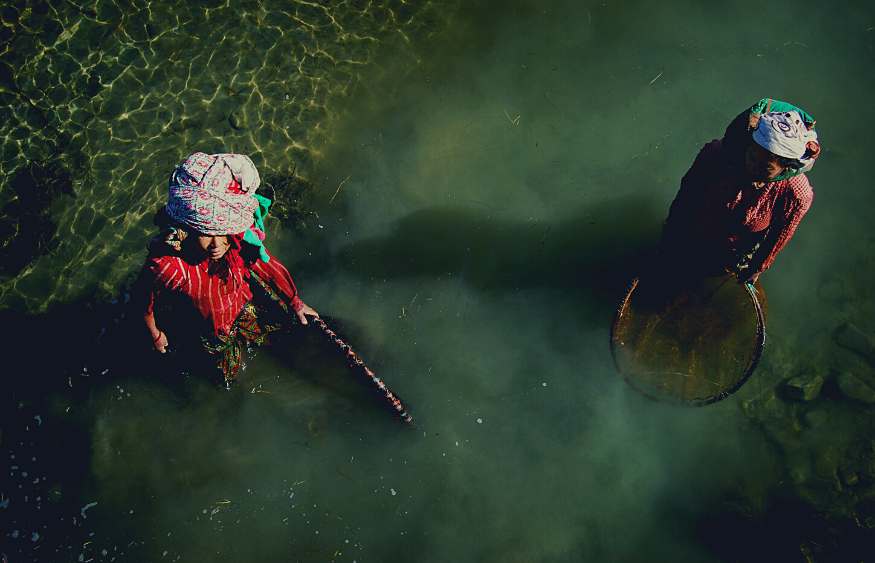Mrinalini Rai, Director, Women4Biodiversity
Traditional knowledge has been recognized as an important aspect of the Convention on Biological Diversity (CBD). Traditional knowledge refers to the knowledge, innovations, and practices of indigenous peoples and local communities that have been passed down from generation to generation. This knowledge is essential for the sustainable use and management of natural resources, and it plays a critical role in conservation efforts.
The Convention on Biological Diversity is the international legal instrument aimed to conserve biodiversity, promote its sustainable use, and ensure the fair and equitable sharing of benefits arising out of the utilisation of genetic resources. The CBD has been ratified by 196 nations. In its preamble, it recognises “the vital role that women plan in the conservation and sustainable use of biological diversity” and affirms “the need for the full participation of women at all levels of policy-making and implementation for biological diversity conservation”.
The fifteenth meeting of the Conference of the Parties (COP 15) to the Convention adopted the Kunming-Montreal Global Biodiversity Framework (KM-GBF), a comprehensive plan to protect the world’s biodiversity following a four-year consultation and negotiation process. This historic Framework, which supports the achievement of the Sustainable Development Goals and builds on the Convention’s previous Strategic Plans, sets out an ambitious pathway to reach the global vision of a world living in harmony with nature by 2050. Among the Framework’s key elements are 4 goals for 2050 and 23 targets for 2030.
The framework includes several provisions that support the integration of traditional knowledge into conservation, sustainable use, and genetic resources. It also recognises the need to ensure gender equality in the implementation of the Framework through a gender-responsive approach (Target 23).
Women and the earth both nurture. Thus, investing in women – especially indigenous women – is investing in the planet, and in turn, investing in life.
Milka Chepkirir, is a member of the Sengwer Indigenous Peoples of Cherang’any Hills, Kenya and coordinates Defending Territories of Life at the ICCA Consortium
Indigenous women play a crucial role in the preservation and transmission of traditional knowledge. They are often the primary caretakers of natural resources and have a deep understanding of the local ecosystem. Through their knowledge, they can provide valuable information to the global community about conservation and sustainable use. However, despite their contributions, their unique perspective on biodiversity and conservation are often overlooked and are excluded from decision-making processes related to their communities and their lands and territories. In many cases, they have also been subjected to violence, discrimination, and other forms of abuse. To safeguard the transmission of traditional knowledge, we need to ensure adequate recognition of the rights of indigenous women and girls.
By recognizing the contributions of indigenous women and other holders of traditional knowledge, we can better incorporate this knowledge into conservation and sustainable development efforts, for better conservation outcomes. The United Nations Declaration on the Rights of Indigenous Peoples (UNDRIP) is a landmark document that seeks to address these issues and promote the rights of indigenous peoples, including women.
UNDRIP also recognises the importance of traditional knowledge in the sustainable use and management of natural resources. Indigenous women have a wealth of traditional knowledge that is essential for the conservation of biodiversity and the sustainable development of their communities. By recognizing and supporting the role of indigenous women in the conservation and sustainable use of natural resources, UNDRIP helps to ensure that their contributions are valued and respected.
Further, the Committee on the Elimination of Discrimination against Women (CEDAW) adopted General Recommendation No.39 on the Rights of Indigenous Women and Girls. General Recommendation No. 9 is the first international treaty that focuses on the rights of Indigenous Women and Girls and includes language that is binding. It is a response to the longstanding demand by indigenous women for a specific instrument that can safeguard and further protect their rights. It also includes recommendations to respect the principles of free, prior and informed consent of indigenous women, including their customary forms of transmission of their traditional knowledge.
The Ad Hoc Open-ended Inter-sessional Working Group on Article 8(j) and Related Provisions of the Convention will hold its twelfth meeting in Geneva from 12 to 16 November 2023. In response to the call made by governments during the United Nations Biodiversity Conference held in Montreal in December 2022, this meeting will focus on the development of a new programme of work of Article 8(j) and other provisions of the Convention related to indigenous peoples and local communities that will be aligned with the Kunming-Montreal Global Biodiversity Framework.
Empowering indigenous women and recognising their traditional knowledge in conservation efforts is not only the right thing to do, but it is also essential for the long-term sustainability of our planet. The Kunming Montreal Global Biodiversity Framework is a step in the right direction, but there is much work to be done to ensure that traditional knowledge and women’s perspectives are fully integrated into all three pillars of the Convention – conservation, sustainable use, and access and benefit sharing.
It is imperative to take advantage of this critical moment in the discussions on the future of Article 8(j). We must seize this crucial moment to bring together different elements and strengthen collaborations, while also shining a light on the perspectives, input, and expertise of indigenous women. It’s vital that we take concrete steps to make a real impact.
